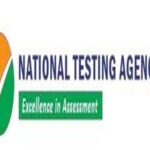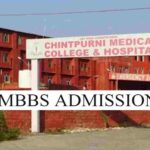
The Government Allopathic Medical College at Banda has eventually entered recognition from the apex medical body- National Medical Commission( NMC). This news comes as a major relief to medical scholars who have been suffering due to the lack of recognition after taking admission at the medical council since 2017. The advertisement of the recognition was verified by star Secretary of Medical Education Alok Kumar on Sunday. In addition to Banda Medical College, two further medical colleges in the state are anticipated to admit recognition soon. The Indian Medical Association( IMA) expressed its gratitude to Chief Minister Yogi Adityanath for supporting the future of over 300 medical scholars.
Recognition for Banda Medical College and Inspection of Other Colleges
With the recognition from the NMC, the Government Allopathic Medical College at Banda has eventually achieved the recognition it deserves. The NMC has also conducted examinations of Azamgarh and Saharanpur medical colleges, and recognition will be granted to them as well in the near future.
Relief for Medical scholars
The recognition of Banda Medical College comes as a major relief to medical scholars who have been facing uncertainty and difficulty due to the lack of recognition. numerous scholars who pursued their MBBS course at Government Allopathic Medical College at Banda, Government Medical College at Azamgarh, and Government Medical College at Saharanpur were unable to gain recognition from the National Medical Commission. This left them stranded, as they were unable to get state medical council registration, which is necessary for rehearsing medicine in the state of Uttar Pradesh.
MA’s Efforts and Concerns
The Indian Medical Association played a pivotal part in supporting the recognition of these medical colleges. In a letter addressed to Chief Minister Yogi Adityanath, the IMA expressed serious concerns about the working of the National Medical Commission. The association blamed the mask permit given by the NMC, which allowed medical colleges to operate solely on the basis of affidavits. This decision has led to the current situation where estimable medical colleges have been unable to gain recognition, causing distress to hundreds of medical scholars.
Need for Better Functioning at the National Medical Commission
The IMA emphasized the need for immediate intervention and better performing at the National Medical Commission. The association stressed the impact of the lack of recognition on medical education and the future of scholars. They prompted the Chief Minister to take action to address the incautious and careless functioning at the NMC, which has resulted in the current dilemma.
Consequences of Lack of Recognition
The lack of recognition from the NMC has had severe consequences for the affected medical graduates. Without recognition, they’re unable to register with the State Medical Faculty( SMF), the representative body of the NMC in Uttar Pradesh. Registration with the SMF is obligatory for medical graduates who wish to exercise medicine in the state or pursue advanced studies. Without enrollment , these graduates may be treated as quacks, and legal action may be taken against them by the Chief Medical Officer of their separate quarter. This situation has caused query and solicitude among the affected scholars, who have been staying for a resolution to their lack of recognition.
Concerns of 2017 Batch MBBS Graduates
The 2017 batch MBBS graduates from these three medical colleges have been facing enterprises regarding the lack of recognition for more than a time now. This situation has created significant challenges for them as they’re unable to gain enrollment from the State Medical Faculty. As a result, they’re unable to exercise medicine or pursue further specialization.
The lack of recognition for the 2017 batch graduates has put their career prospects on hold and has caused frustration and query among them. They’ve invested times of hard work, fidelity, and fiscal resources into their medical education, but the detention in recognition has hindered their professional growth.
Likewise, the 2018 batch MBBS scholars are also concerned about their future as they’re approaching their examinations and are about to complete their MBBS degree. They’ve witnessed the difficulties faced by the 2017 batch and fear that they might encounter similar challenges.
The lack of recognition not only affects the individual graduates but also has wider implications for the healthcare system and society as a whole. These graduates retain precious medical knowledge and chops that could contribute to addressing the deficit of healthcare professionals and perfecting healthcare services. Still, without proper recognition and enrollment , their eventuality remains untapped.
The concerned authorities and applicable stakeholders should address this issue instantly and give a resolution for the 2017 batch graduates. It’s essential to ensure that their hard work and qualifications are honored, allowing them to contribute to the healthcare field and fulfill their professional aspirations.
Also, measures should be taken to help similar detainments in recognition for future batches, similar as streamlining executive processes and perfecting collaboration between medical colleges and nonsupervisory bodies. This will help maintain the trust and confidence of future medical graduates in the system and ensure the smooth progression of their careers.
Overall, the enterprises faced by the 2017 batch MBBS graduates and the apprehensions of the 2018 batch scholars punctuate the need for effective communication, translucency, and timely recognition processes within the medical education system. Resolving these issues won’t only profit the affected individualities but also contribute to the overall development of the healthcare sector.
























